On the afternoon of May 13, Chinese President Xi Jinping held talks with Brazilian President Luiz Inacio Lula da Silva, who is on a state visit to China, at the Great Hall of the People in Beijing. Xi Jinping emphasized that China and Brazil should expand cooperation in energy transition, aerospace, digital economy, and artificial intelligence. The two countries should carry out cultural and people-to-people exchanges, enhance the vitality of the China-Brazil community with a shared future, strengthen cooperation in culture, education, tourism, and media, and at the sub-national level, and provide more convenience for personnel exchanges between the two sides.
Roberto Medronho, President of the Federal University of Rio de Janeiro (UFRJ), accompanied President Lula on the visit to China. He attended the Fourth Ministerial Meeting of the China-Community of Latin American and Caribbean States (China-CELAC) Forum.
On May 12, the agreement signing ceremony of Beihang-UFRJ Confucius Institute and the inauguration ceremony of Beihang Innovation Institute in Brazil took place at the Ruxin Conference Center of Beihang University. Just five days later, on May 17, the launch ceremony of the Beihang Brazil Center was held at the Hangzhou International Campus of Beihang University. With these initiatives, Beihang University has advanced its cooperation with Brazil in Beijing, Hangzhou, and Rio de Janeiro. This marks that the bilateral cooperation in education and technology has entered a phase of full-factor collaborative innovation.
On May 17, Roberto Medronho, President of UFRJ, and Papa Matar Ndiaye, Head of International Relations of UFRJ, paid a special visit to the Hangzhou International Campus of Beihang University. They witnessed the launch of the Beihang Brazil Center with representatives from the university and local authorities. Other attendees included Zhao Weisheng, Vice President of Beihang University; Shu Peidong, Deputy Director of the Department of Education of Zhejiang Province; Wang Hongwei, a member of the Party Leadership Group and Deputy Director of the Foreign Affairs Office of the Zhejiang Provincial People's Government; Liu Xiaowei, Director of Division of American and Oceanian Affairs; Tan Qinghai, a member of the Party Leadership Group and Level II Bureau Rank Official of the Foreign Affairs Office of the Hangzhou Municipal People's Government; Pan Changqing, Director of the Higher Education Division (Exchange and Cooperation Division) of the Hangzhou Municipal Education Bureau; and Zhang Xue, Director of the International Cooperation Department of the Chinese Society of Aeronautics and Astronautics (CSAA). Representatives from the National Key Laboratory of Spintronics, the International Research Center for Mathematics and Interdisciplinary Sciences, Medical Engineering & Engineering Medicine Innovation Center, COMAC-Beihang Commercial Aircraft Innovation Center (Hangzhou), the International Research Center for Geological and Planetary Sciences, and the Regional Centre for Space Science and Technology Education in Asia and the Pacific (China) (Affiliated to the United Nations) witnessed the inauguration of the center. The ceremony was chaired by Dong Zhuoning, Director of the Hangzhou International Innovation Institute of Beihang University (H3I).
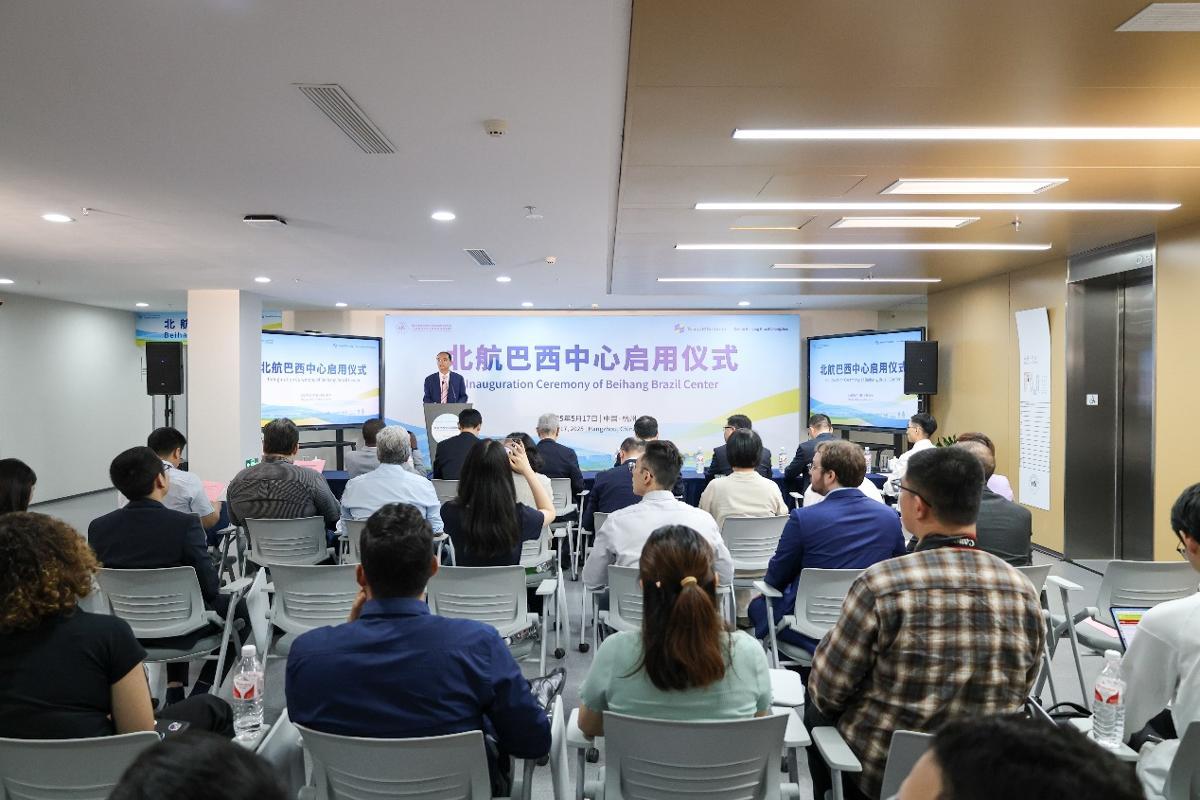
At the beginning of the ceremony, Professor Diao Xungang from H3I outlined the construction plan of the Beihang Brazil Center. Main functions of the center include talent recruitment and development, scientific research cooperation, and cultural exchange. Through scholar visits, international academic activities, and other forms, the center will build a platform for exchanges of science and technology education between China and Brazil and promote universities in the two countries to carry out deep cooperation in aerospace and fundamental sciences.
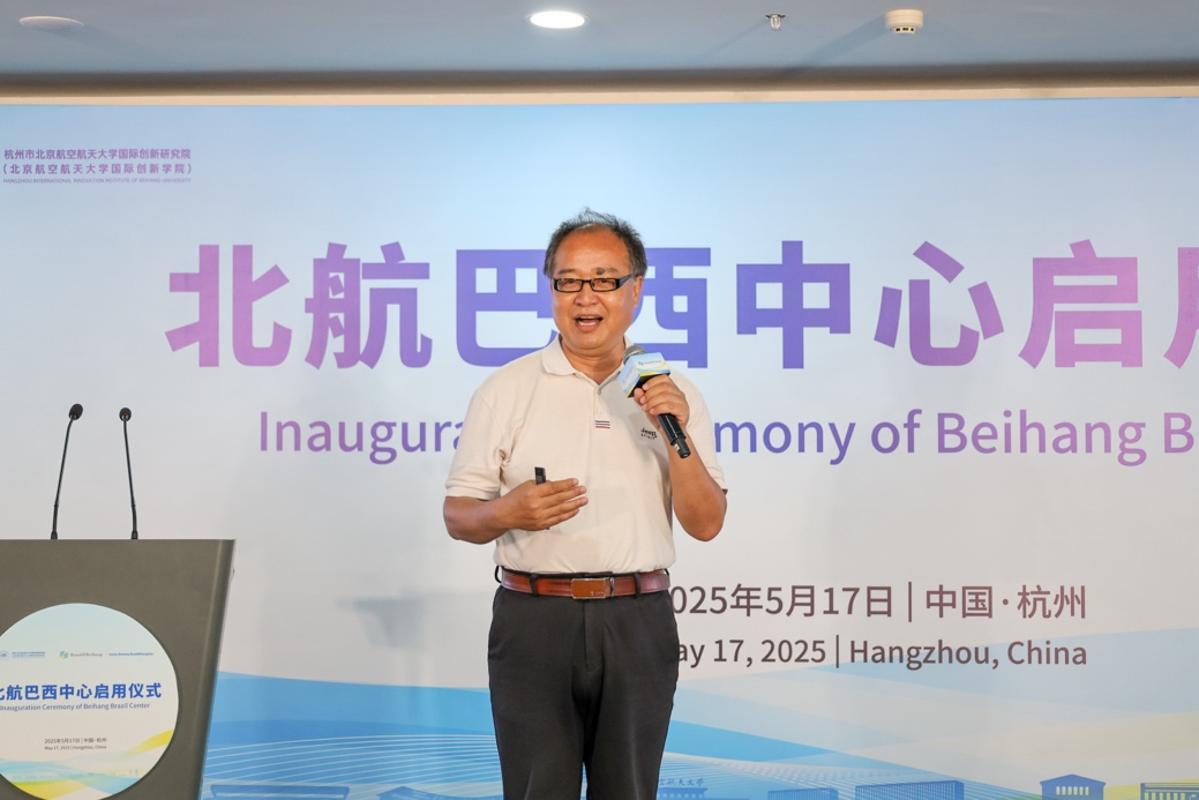
Shu Peidong pointed out that the establishment of the Beihang Brazil Center was a positive response to the spirit of the meeting of the two heads of state, enriching the international features of the campus jointly built by the university and the local government. Zhejiang has close economic, trade, and cultural ties with Brazil. It is expected that the center could play its role as a bridge to deepen cooperation between BRICS and Portuguese-speaking countries and become a hub for exchanges and a role model for educational cooperation between China and Brazil.
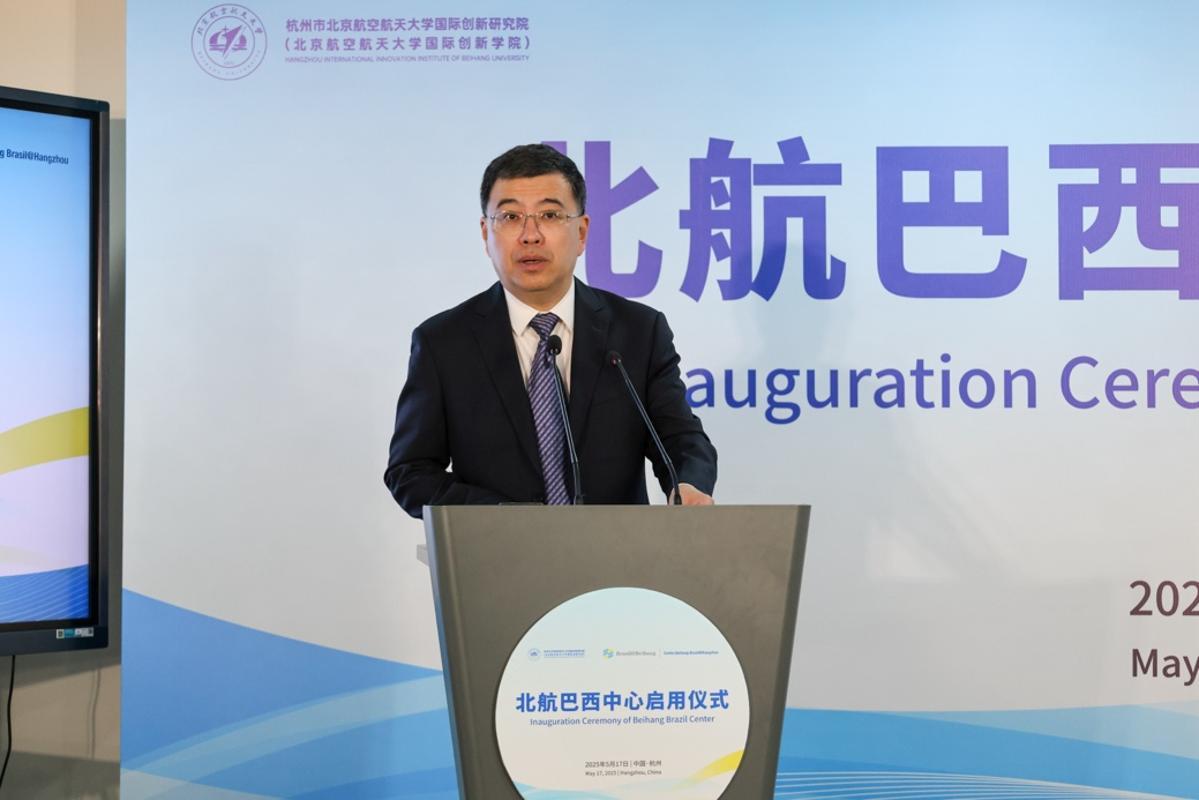
Wang Hongwei said that the opening of the Beihang Brazil Center was a vivid demonstration of the comprehensive strategic partnership between China and Brazil in higher education. It also reflects the deepening cooperation between Zhejiang and Brazil. In April, Zhejiang received the visiting governor of Rio de Janeiro, Brazil. The center established in Hangzhou will help Zhejiang tap into global innovation resources and promote the integrated development of education, technology, and culture.
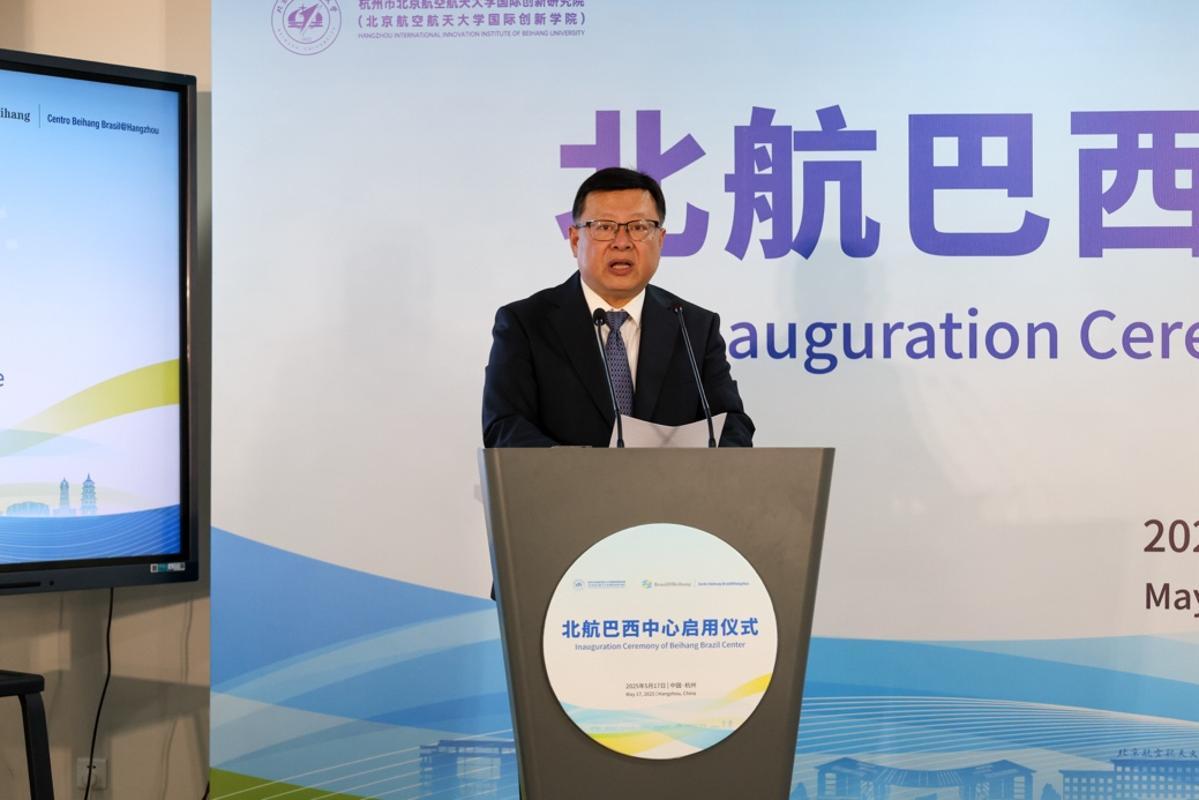
Zhao Weisheng pointed out that the inauguration of this new platform in Hangzhou, merely five days after the launch ceremony of the Beihang-UFRJ Confucius Institute and Beihang Innovation Institute in Brazil, reflected the accelerated pace of cooperation between the two universities. He said that Brazilian faculty members and students are already working and studying at the Hangzhou International Campus of Beihang University. He expected that the center could promote mutual visits and scientific research cooperation between Chinese and Brazilian teachers and students, injecting new impetus into the friendship between the two countries.
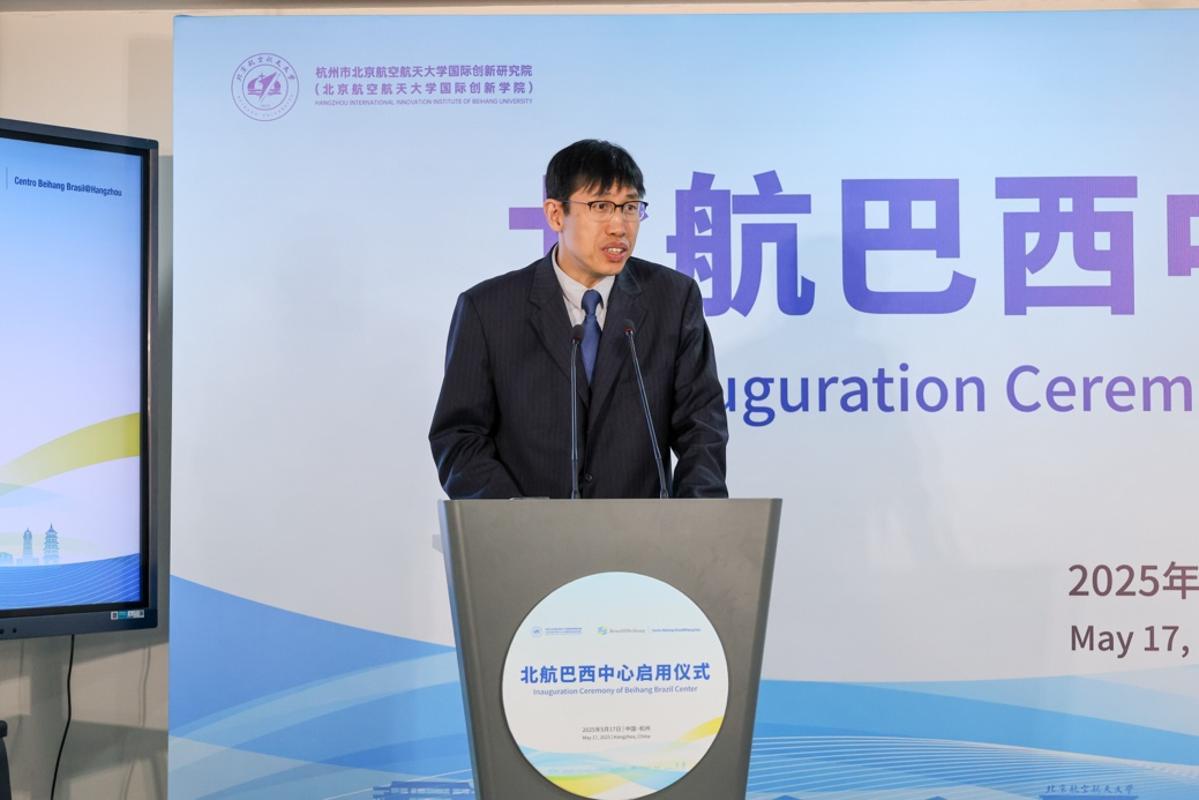
Roberto Medronho said that as a top university in Brazil, UFRJ had significant advantages in multiple disciplines and attached great importance to cooperation with China in higher education and technological innovation. Accompanying President Lula in the visit, he shoulders an important mission to advance science and education cooperation between China and Brazil to a new level and make contributions through the joint efforts of both sides to the well-being of the two peoples and global peace and development.
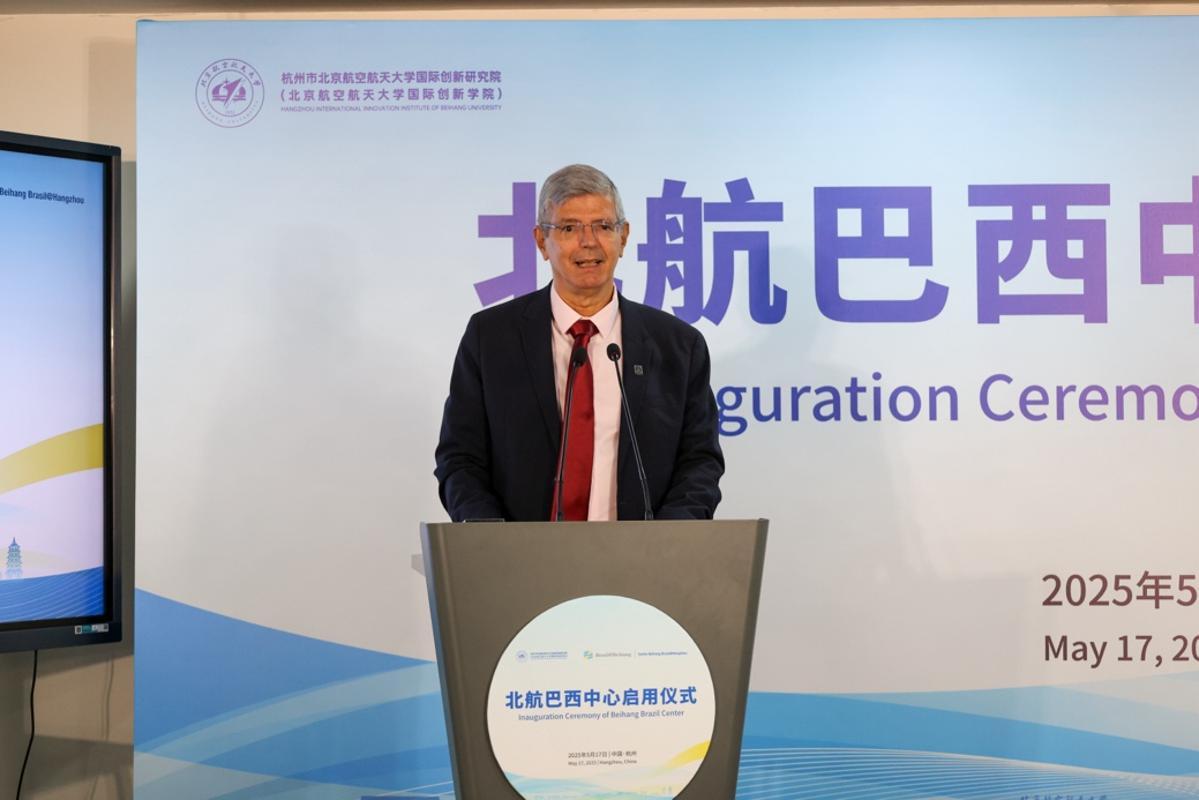
Subsequently, Roberto Medronho, Zhao Weisheng, Shu Peidong, Wang Hongwei, Tan Qinghai, Pan Changqing, Dong Zhuoning, and Diao Xungang jointly unveiled the Beihang Brazil Center. After its opening, the center will serve as the main liaison platform between Beihang University and Brazilian academic and industrial institutions, coordinating and promoting cooperative projects such as talent recruitment and academic exchanges between China and Brazil.
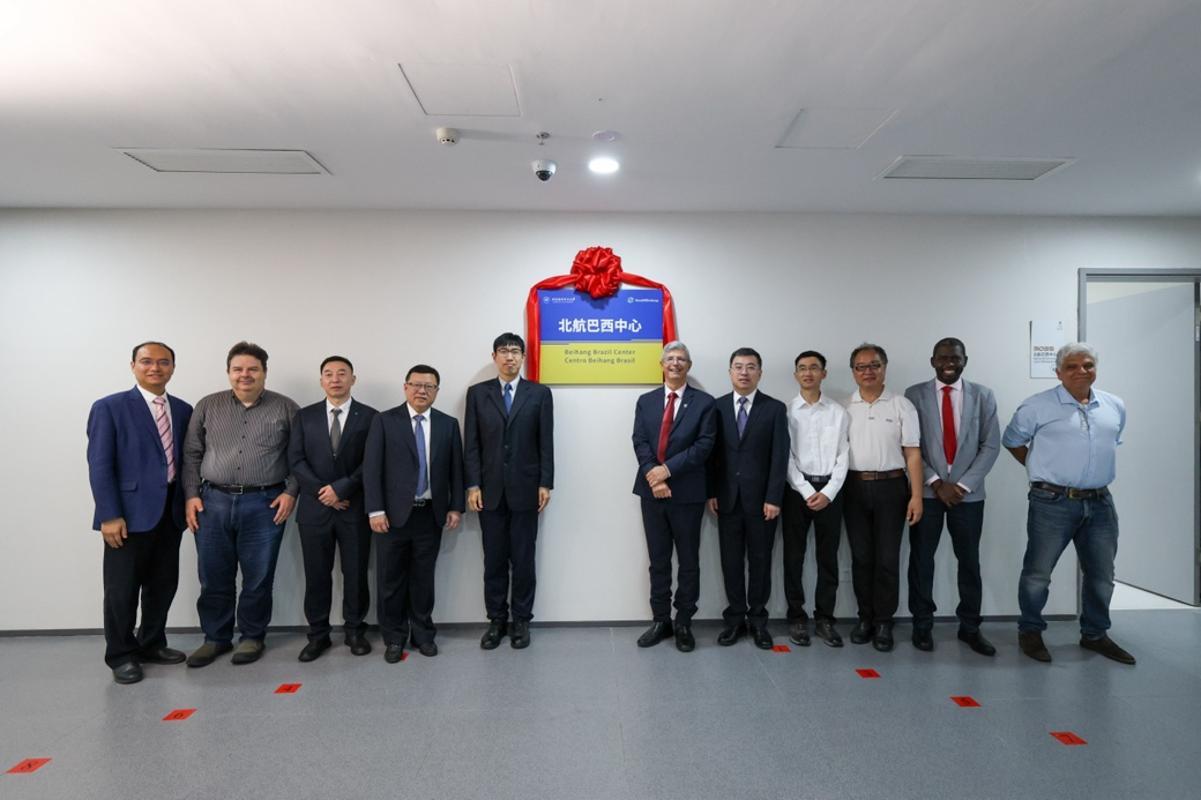
At the ceremony, Dong Zhuoning presented an appointment certificate to Carlos Arnoldo Morales, a former professor at UFRJ and an expert in differential dynamical systems research, marking the first step taken by Beihang Brazil Center in talent recruitment. In the future, the center will continue to attract outstanding experts and scholars from Brazil, with a focus on promoting joint research in fields such as aerospace and basic mathematics. It is expected that the first batch of Brazilian scholars will join the Hangzhou International Campus of Beihang University in November.
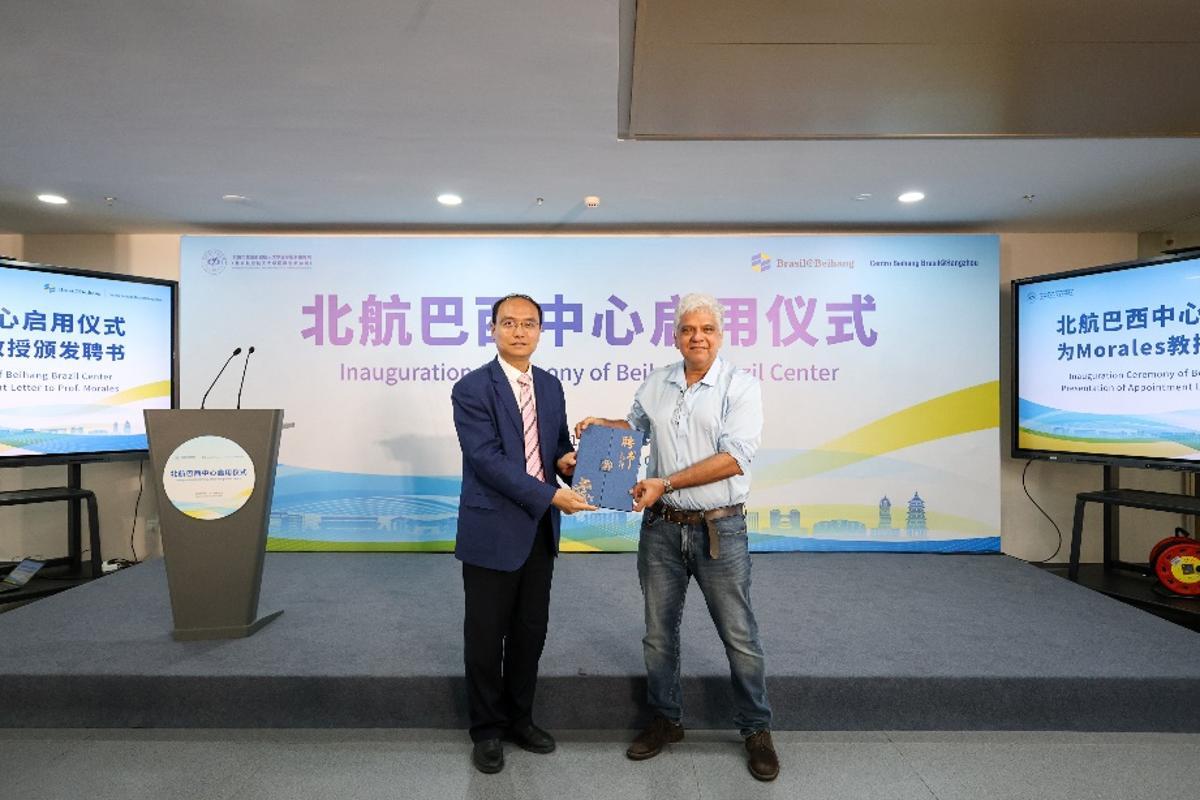
Prior to the opening ceremony, Roberto Medronho met with school and government leaders. He also visited the library, teaching buildings, faculty apartments, and other facilities to gain detailed information about the campus.
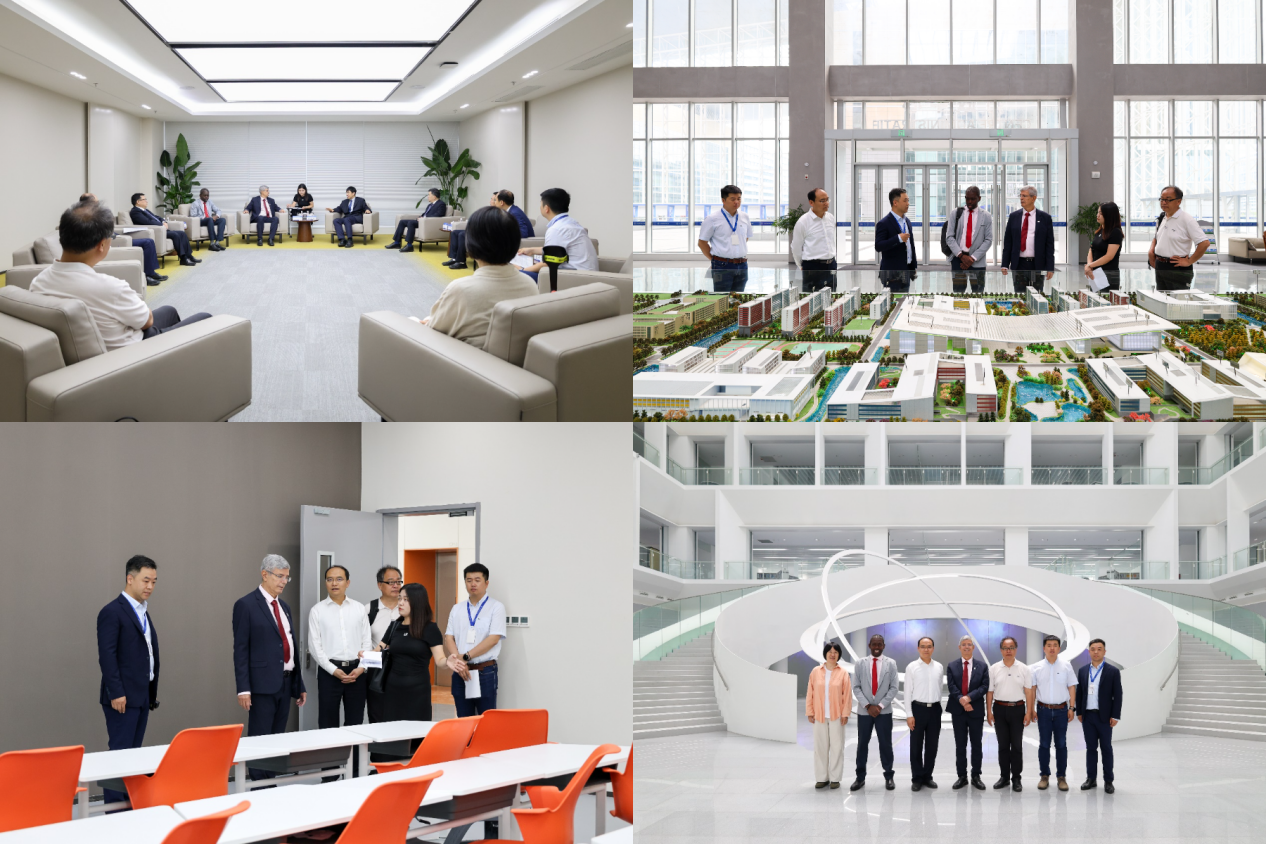
In the future, Beihang Brazil Center, as an important hub for Beihang University’s “three-in-one” cooperation with Brazil, will actively attract high-quality intellectual resources from Brazil. Together with Beihang-UFRJ Confucius Institute and Beihang Innovation Institute in Brazil, the center will form a closed loop of “building a cultural foundation – making breakthroughs in scientific research – integrating industry and education”. The center will foster people-to-people friendship through cultural exchange, deepen joint scientific research between China and Brazil, cultivate new quality productive forces, and comprehensively serve the China-Brazil community with a shared future.
Approved by Dong Zhuoning, Zhang Wei, Xu Ran
Edited by Yuan Xiaohui

